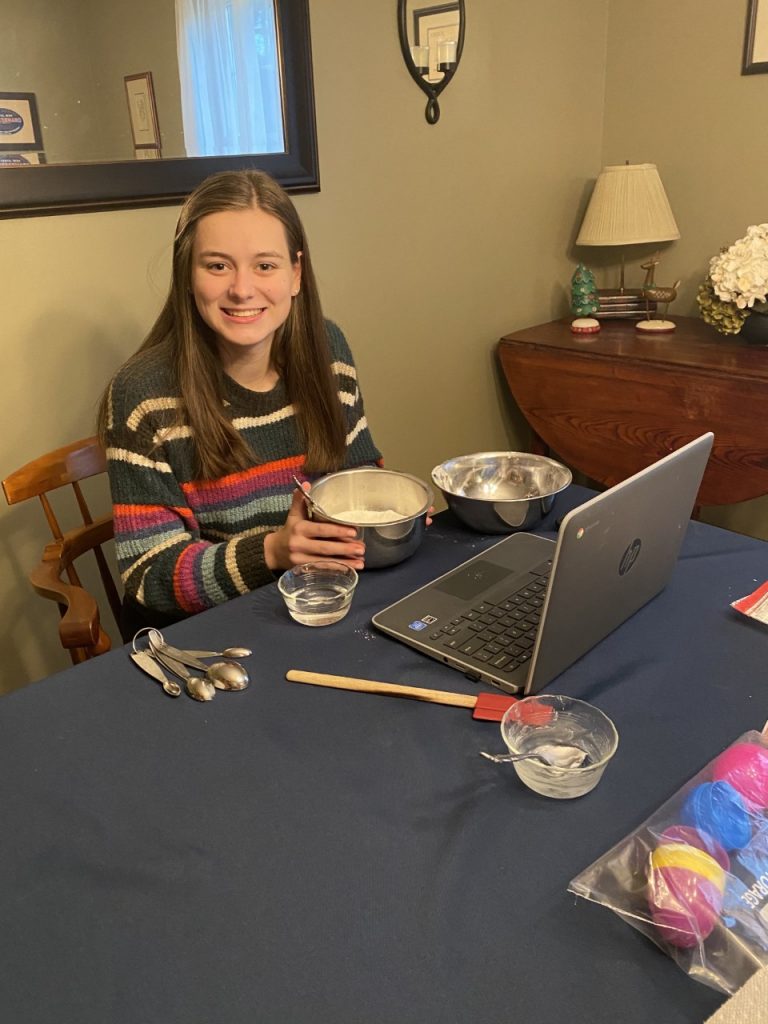

In the United States, less than 30 percent of engineers are women. Seneca High School and Lockheed Martin are trying to change that through opportunities with Project Lead the Way (PLTW).
PLTW is a four-year program that gives high school students the ability to learn the basics of engineering and other math-based career paths. In December, PLTW’s women were able to go virtually inside Lockheed Martin, an established aerospace and defense company, to explore a potential career in engineering.
Seneca sent Hannah Cutts and Julianna Zimm, two junior students in PLTW, to the online workshop. Over three days, they designed 3D models, did online coding and learned the science of bath bombs.
“I think that it was inspiring to hear from so many of the different women,” Cutts said. “And I think it was inspiring to hear how they got there, and that we could do it if that’s what we set out to do.”
Lockheed Martin’s Women in Engineering program introduced Cutts and Zimm to some of the company’s high-ranking scientists and engineers. During the daily seminars, they spoke about struggles women have faced in the career.
“We got to hear about their hardships,” Zimm explained. “Maybe they were the only women in a room of 50 guys, and they’re on a board trying to discuss new ideas. It might be a little bit intimidating.”
Cutts and Zimm agreed they haven’t felt the same in their PLTW classes, but they see some of the men come into the class with base knowledge of things like coding and building that they don’t have.
“There are boys that do know more than us about what we’re doing,” Cutts acknowledged. “But I would say it hasn’t been a challenge or something that has been problematic for us. I’m not really intimidated by the other boys in our class.”
Being a part of Lockheed Martin’s program introduced the students to different areas of engineering. Zimm said she enjoyed chemical engineering the best, while Cutts found mechanical to be the most interesting.
“Girl power” was a theme in how Zimm and Cutts view their education.
“I was looking up statistics a few days ago, and I found that on average, females in college or in high school academically score higher than the average male,” Zimm noted. “So, I mean, think about how much more efficient products could be coming out if we had all minds in there contributing instead of just, you know, guys.”
Both students agreed more programs like PLTW should be implemented in schools around the world.
“We need to get it out to younger girls and get them excited about STEM careers and not just going into careers that already have a lot of women in them. I think we need minds in all areas,” Zimm said.
“I’d just say to any girl who’s thinking about going into STEM that they shouldn’t be scared of anything,” Cutts added. “There’s nothing to be scared of. They can do just as well as anyone.”









